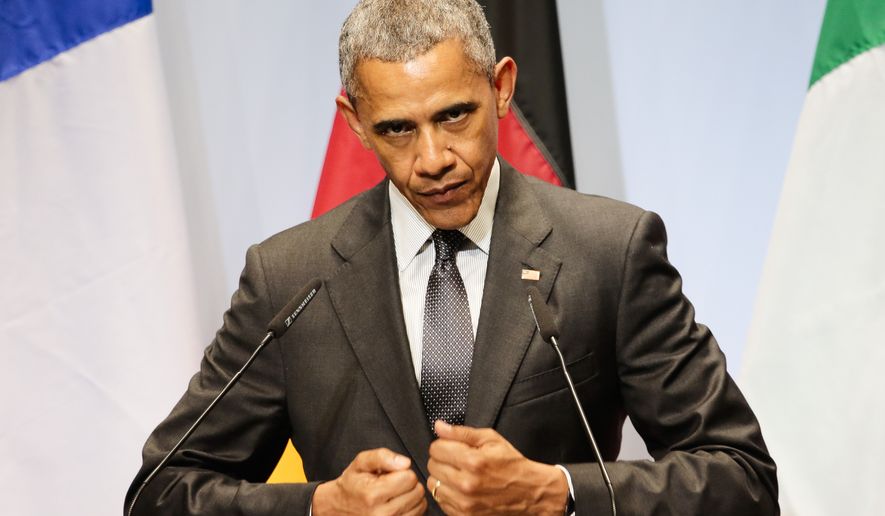A new Pentagon report says that climate change is an “urgent and growing threat to our national security” and blames it for “increased natural disasters” that will require more American troops designated to combat bad weather.
Some studies have questioned whether such a trend exists.
Says the Pentagon report released Wednesday, “Global climate change will have wide-ranging implications for U.S. national security interests over the foreseeable future because it will aggravate existing problems — such as poverty, social tensions, environmental degradation, ineffectual leadership, and weak political institutions — that threaten domestic stability in a number of countries.”
The report’s reference to “increased natural disasters” is not backed by several studies. The United Nations’ latest report on global warming said there was insufficient evidence to say there have been increased storm, flood or drought activity. A climate center in Colorado said its study of decades of weather patterns failed to show any increase in tornadoes, hurricanes or other natural disasters.
Still, the Pentagon report, called “National Security Implications of Climate-Related Risks and a Changing Climate,” has tasked U.S. combat commanders around the globe to plan for “persistently recurring conditions such as flooding [and] drought.” It states that “higher temperatures increase the strain on fragile states and vulnerable population by dampening economic activity.”
The report also tells commanders there are “more frequent and/or severe extreme weather events that may require substantial involvement of DoD units, personnel and assets in humanitarian assistance and disaster relief.”
PHOTOS: Dramatic moment USS Gonzalez executes an incredible 180-degree hairpin turn
It cites as example Super Storm Sandy in New York and New Jersey in 2012 and flooding in Pakistan in 2010, which it said was the worst in recorded history.
The report also cites decreases in Arctic ice cover and sea level increases.
Roger Pielke Jr, a professor of environmental studies at the Center for Science and Technology Police Research at the University of Colorado, studies global weather trends and makes conclusions at odds with the Pentagon report.
Current datasets indicate no significant observed trends in global tropical cyclone frequency over the past century,” he wrote in 2013. “No robust trends in annual numbers of tropical storms, hurricanes and major hurricanes counts have been identified over the past 100 years in the North Atlantic basin.”
“In summary, there continues to be a lack of evidence and thus low confidence regarding the sign of trend in the magnitude and/or frequency of floods on a global scale.”
The United Nations Intergovernmental Panel on Climate Change, a big advocate of changing human behavior to combat global warming, acknowledged there is little evidence of increased natural disasters.
PHOTOS: The Blue Angels: Playing with fire
It said last year there is “low confidence” in any long-term increase in cyclone and hurricane activity. It also said there is “low confidence” in increased tornadoes and hailstorms.
Global warming skeptics says that temperature models put out over a decade ago have proven to be wildly inaccurate today.
• Rowan Scarborough can be reached at rscarborough@washingtontimes.com.




Please read our comment policy before commenting.